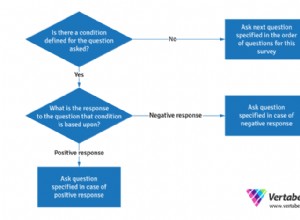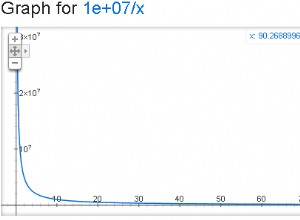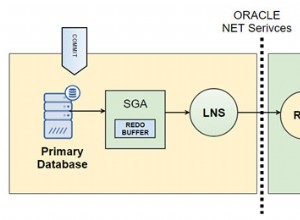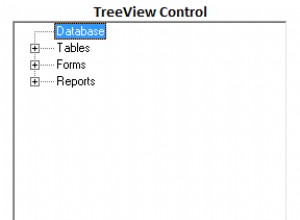यह कमोबेश मैं इसे कैसे करता हूं। मुझे यकीन नहीं है कि यह करने का यह सबसे अच्छा तरीका है, लेकिन यह मेरे लिए काम करता है।
मेरा कारखाना वर्ग मेरे कोड का मूल है। यहां से मैं उन सभी वर्गों को उत्पन्न करता हूं जिनके साथ मैं काम करता हूं। मेरी फ़ैक्टरी क्लास एक अलग फ़ाइल में सहेजी गई है factory.class.php ।
फ़ैक्टरी क्लास होने से, मुझे केवल क्लास फ़ाइलों को केवल एक बार शामिल करने की आवश्यकता है। अगर मेरे पास यह नहीं था, तो मुझे प्रत्येक फ़ाइल के लिए अपनी कक्षा फ़ाइलों को इसका उपयोग करने के लिए शामिल करना होगा। अगर मुझे बाद में किसी क्लास फ़ाइल नाम को अपडेट करने की आवश्यकता है, तो मुझे केवल फ़ैक्टरी क्लास फ़ाइल में अपडेट करने की आवश्यकता है।
फ़ैक्टरी ऑब्जेक्ट बनाने का एक अन्य कारण, डीबी कनेक्शन की संख्या को कम करना था।
मैं प्रत्येक वर्ग को एक अलग फ़ाइल के रूप में सहेजता हूँ
कारखाना वर्ग
include_once('person.class.php');
include_once('tracking.class.php');
include_once('costAnalyzis.class.php');
include_once('activity.class.php');
class Factory {
function new_person_obj($id = NULL) { return new Person(Conn::get_conn(), $id); }
function new_tracking_obj($id = NULL) { return new Tracking(Conn::get_conn(), $id); }
function new_costAnalyzis_obj() { return new CostAnalyzis(Conn::get_conn()); }
function new_activity_obj() { return new Activity(Conn::get_conn()); }
}
कनेक्शन वर्ग
// I have this class in the same file as Factory class
// This creates DB connection and returns any error messages
class Conn {
private static $conn = NULL;
private function __construct() {}
private static function init() {
$conf = self::config();
try {
self::$conn = new PDO($conf['dsn'], $conf['user'], $conf['pass'], array(PDO::MYSQL_ATTR_INIT_COMMAND => "SET NAMES utf8"));
}
catch (PDOException $e) {
// We remove the username if we get [1045] Access denied
if (preg_match("/\b1045\b/i", $e->getMessage()))
echo "SQLSTATE[28000] [1045] Access denied for user 'name removed' @ 'localhost' (using password: YES)";
else
echo $e->getMessage();
}
}
public static function get_conn() {
if (!self::$conn) { self::init(); }
return self::$conn;
}
// I used to get login info from config file. Now I use Wordpress constants
private static function config() {
$conf = array();
$conf['user'] = DB_USER; //$config['db_user'];
$conf['pass'] = DB_PASSWORD; //$config['db_password'];
$conf['dsn'] = 'mysql:dbname='.DB_NAME.';host='.DB_HOST;
return $conf;
}
}
विभिन्न वर्ग वस्तुएं
ये आपकी कक्षाएं हैं। यह वह जगह है जहां आप अपने डेटा के साथ काम करते हैं मेरे अपने कोड में मैं त्रि-स्तरीय आर्किटेक्चर का उपयोग कर रहा हूं, प्रस्तुतिकरण को बिजनेस लेयर और डेटा ऑब्जेक्ट लेयर से अलग कर रहा हूं।
class Person extends PersonDAO {
function getPersonData($id) {
$result = parent::getPersonData($id);
// Here you can work with your data. If you do not need to handle data, just return result
return $result;
}
}
// I only have SQL queries in this class and I only return RAW results.
class PersonDAO {
// This variable is also available from you mother class Person
private $db;
// Constructor. It is automatically fired when calling the function.
// It must have the same name as the class - unless you define
// the constructor in your mother class.
// The &$db variable is the connection passed from the Factory class.
function PersonDAO (&$db) {
$this->db = &$db;
}
public function get_data($id) {
$sql ="SELECT a, b, c
FROM my_table
WHERE id = :id";
$stmt = $this->db->prepare($sql);
$stmt->execute(array(':id'=> $id));
$result = $stmt->fetchAll(PDO::FETCH_ASSOC);
return $result;
}
public function get_some_other_data() {
$sql ="SELECT a, b, c
FROM my_table_b";
$result = $stmt->fetchAll(PDO::FETCH_ASSOC);
return $result;
}
}
अपनी अन्य कक्षाओं के लिए भी ऐसा ही करें।
सब कुछ एक साथ रखना
ध्यान दें कि हम केवल एक फ़ाइल, फ़ैक्टरी फ़ाइलें शामिल करते हैं। अन्य सभी वर्ग फ़ाइलें फ़ैक्टरी क्लास फ़ाइल में शामिल हैं।
// Include factory file
include_once('factory.class.php');
//Create your factory object
$person = Factory::new_person_obj();
//Get person data
$data = $person->getPersonData('12');
// output data
print_r($data);




